
Cannes: The Jewel of the French Riviera
Cannes is a glamorous city on the French Riviera, world-famous for its annual film festival. With its luxurious hotels, pristine beaches, and upscale shopping, it offers a taste of the high life. The city's palm-lined Boulevard de la Croisette is perfect for a leisurely stroll by the sea, offering stunning views and access to high-end boutiques and restaurants. The old town of Le Suquet provides a charming contrast to the glitz and glamour. Wander through its narrow, winding streets to discover quaint houses and local markets. From the top, you'll enjoy panoramic views of the city and the Mediterranean Sea. The Marché Forville is a must-visit for food lovers, offering a variety of fresh local produce. Cannes is also a great base for exploring the wider region. The nearby Lérins Islands are a short boat ride away and offer a peaceful retreat with historical sites and natural beauty. Whether you're a film buff, a history enthusiast, or just looking to relax in a beautiful setting, Cannes has something to offer everyone.
Local tips in Cannes
- Visit during the Cannes Film Festival in May for a chance to see celebrities and exclusive film premieres.
- Make sure to explore Le Suquet for a more authentic and historical experience of the city.
- Take a boat trip to the Lérins Islands for a peaceful escape and beautiful scenery.
- Shop along Boulevard de la Croisette for high-end fashion and luxury brands.
- Visit Marché Forville early in the morning to experience the best of local produce and seafood.
Neighbourhoods in Cannes
Cannes: The Jewel of the French Riviera
Cannes is a glamorous city on the French Riviera, world-famous for its annual film festival. With its luxurious hotels, pristine beaches, and upscale shopping, it offers a taste of the high life. The city's palm-lined Boulevard de la Croisette is perfect for a leisurely stroll by the sea, offering stunning views and access to high-end boutiques and restaurants. The old town of Le Suquet provides a charming contrast to the glitz and glamour. Wander through its narrow, winding streets to discover quaint houses and local markets. From the top, you'll enjoy panoramic views of the city and the Mediterranean Sea. The Marché Forville is a must-visit for food lovers, offering a variety of fresh local produce. Cannes is also a great base for exploring the wider region. The nearby Lérins Islands are a short boat ride away and offer a peaceful retreat with historical sites and natural beauty. Whether you're a film buff, a history enthusiast, or just looking to relax in a beautiful setting, Cannes has something to offer everyone.
When is the best time to go to Cannes?
Iconic landmarks you can’t miss
Palace of Festivals and Congresses of Cannes
Home to the Cannes Film Festival, this iconic venue hosts a variety of events year-round on the famous Croisette.
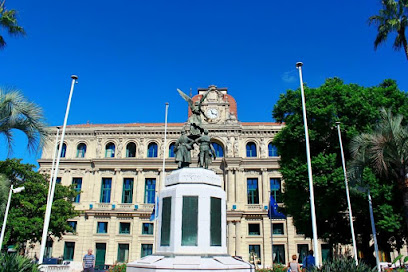
Royal Fort
Explore a historic island fortress and former prison, home to the Man in the Iron Mask, with stunning views and maritime history.
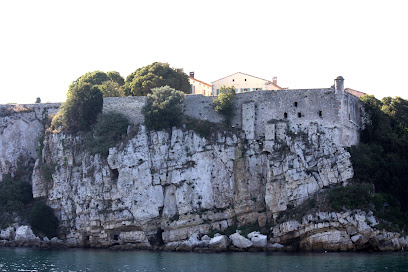
Église Notre-Dame d'Espérance
Discover Cannes' historic Église Notre-Dame d'Espérance: a blend of Gothic architecture, art, and panoramic views in the heart of Le Suquet.
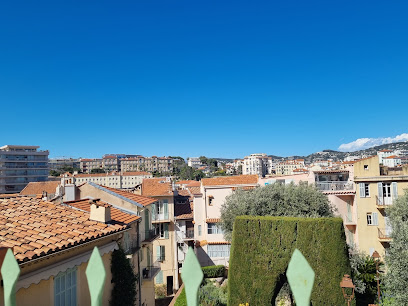
Abbaye de Lérins
Discover a serene island escape at Abbaye de Lérins, where monks have cultivated wine and spirituality for centuries off the coast of Cannes.
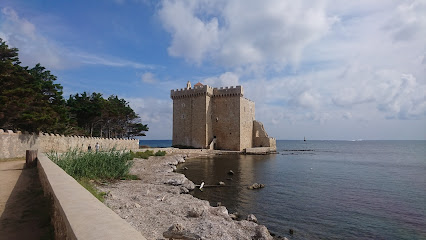
Musée des explorations du monde
Explore global art and history at Cannes' Musée des Explorations du Monde, nestled in a medieval castle with panoramic views of the French Riviera.
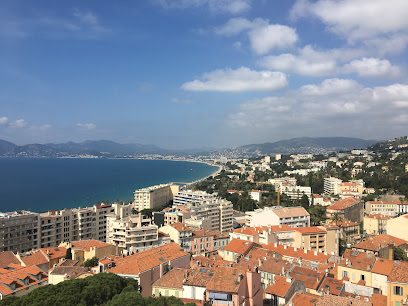
Cannes Walk Of Fame
Walk in the footsteps of cinematic legends at Cannes' Chemin des Étoiles, a tribute to the stars of the silver screen.
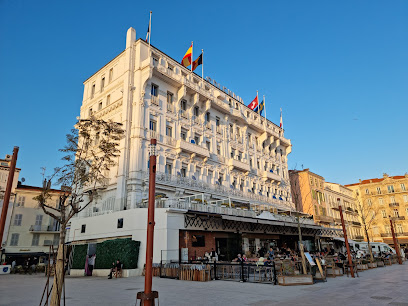
Musée du Masque de fer et du Fort Royal
Discover history and mystery at the Fort Royal museum on Île Sainte-Marguerite, once home to the Man in the Iron Mask.
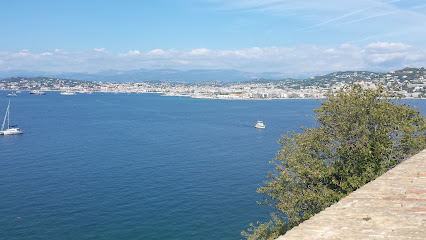
Church of Our Lady of Good Voyage
A historic church in Cannes offering a peaceful retreat with stunning stained glass and a rich connection to the city's past.
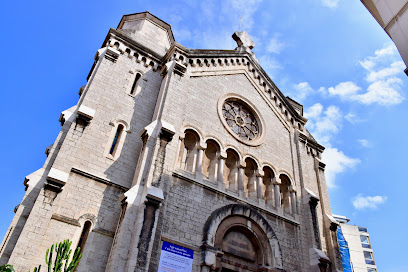
Villa Domergue
Discover Villa Domergue: An Art Deco masterpiece with stunning gardens and panoramic views of the Bay of Cannes.
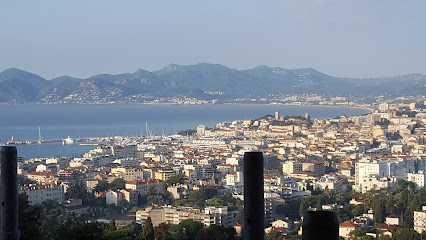
St. Michael the Archangel Church
Discover the serene beauty and Russian heritage of St. Michael the Archangel Church, a captivating landmark in the heart of Cannes.
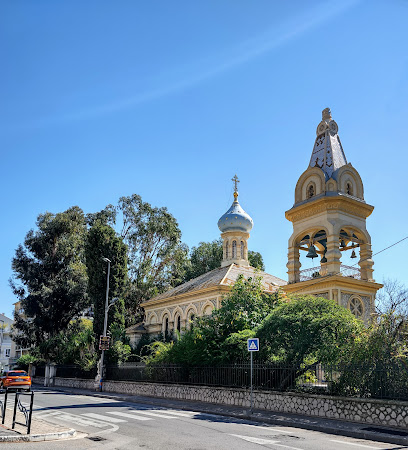
Le Suquet, old quarter of Cannes
Discover the soul of Cannes in Le Suquet: a historic hilltop neighborhood with stunning views, charming streets, and cultural treasures.
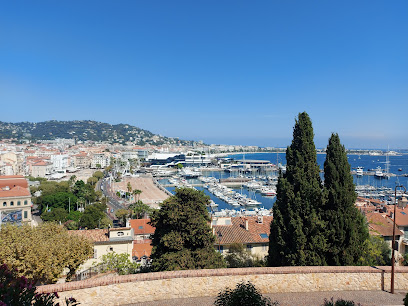
Église Notre-Dame des Pins
Discover Église Notre-Dame des Pins in Cannes: a serene sanctuary blending architectural styles amidst a tranquil pine forest setting.
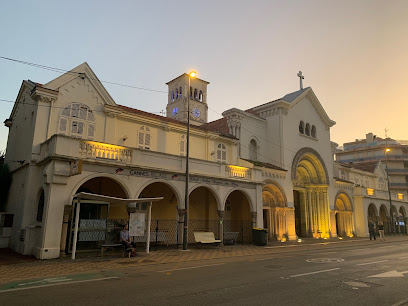
Suquet des Art(iste)s - Résidence d'artistes
Discover contemporary art in a unique setting at Suquet des Art(iste)s, nestled in Cannes' historic Le Suquet district.
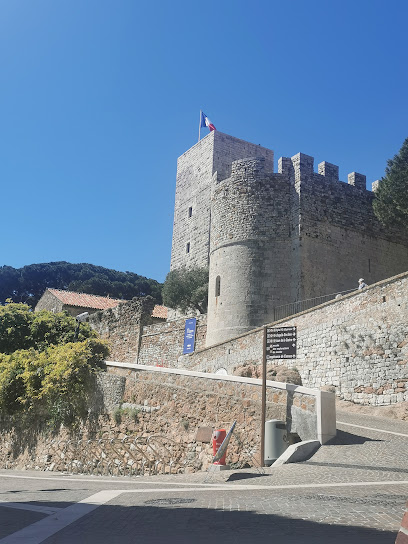
Cannes Riviera
Breathtaking views of Cannes and the French Riviera from an elevated observation point. Perfect for photos, relaxation, and soaking in the scenery.
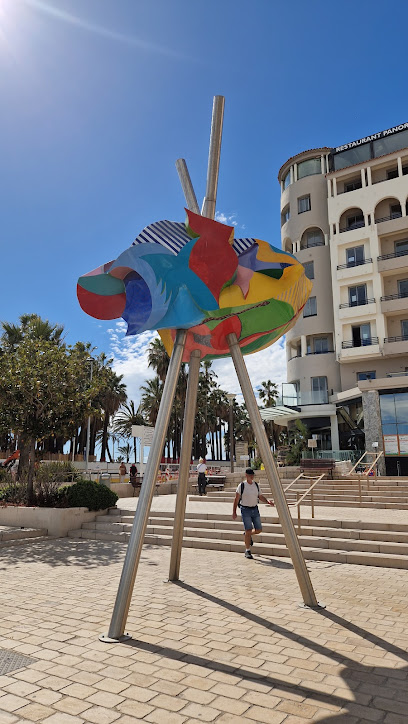
Tour du Masque de fer
Discover the captivating mysteries of the Iron Mask at the Tour du Masque de fer, a must-visit museum in the heart of Cannes, France.
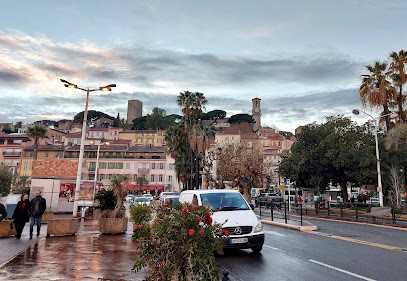
Unmissable attractions to see
Palace of Festivals and Congresses of Cannes
Experience the glamour and excitement of Cannes at the Palais des Festivals et des Congrès, home to the world-renowned film festival and a vibrant hub of international events.
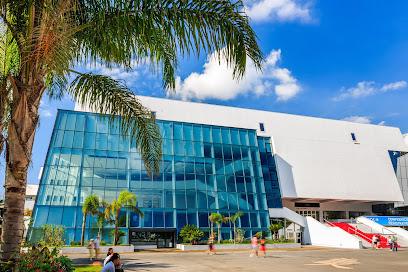
Port de Saint-Tropez
Experience the allure of the French Riviera at Port de Saint-Tropez, where luxury yachts meet Provençal charm in a historic harbor, creating an unforgettable Mediterranean escape.
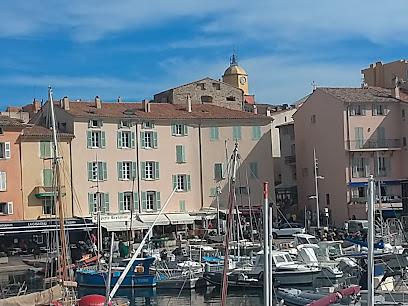
IGY Vieux-Port de Cannes
Experience the glamour of the French Riviera at IGY Vieux-Port de Cannes, where luxury yachts meet historic charm in the heart of Cannes, offering world-class events and stunning Mediterranean views.
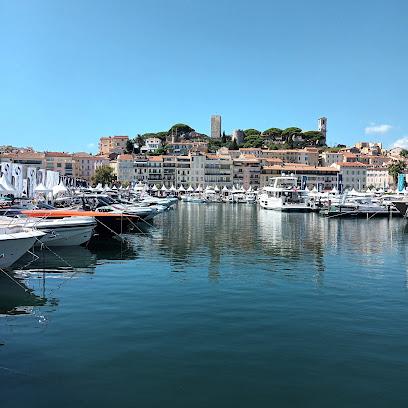
Parfumerie Fragonard - The History Factory Grasse
Discover the art of perfume making at Fragonard Perfumery in Grasse, a historic factory offering free tours and a fascinating glimpse into the world of fragrance.
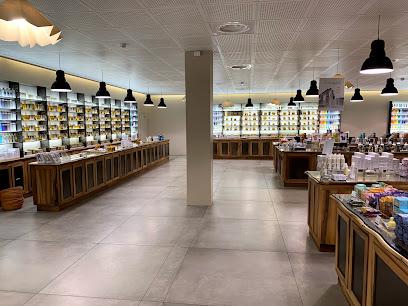
Marché Forville
Experience the vibrant heart of Cannes at Marché Forville, a sensory explosion of Provençal flavors, aromas, and colors, offering fresh local produce and a taste of authentic culture.
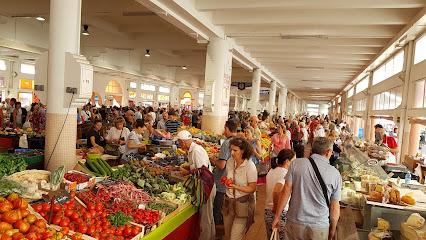
Marché provençal
Immerse yourself in the vibrant colors, scents, and flavors of Provence at Antibes' Marché Provençal, a daily celebration of local culture and culinary delights in the heart of the Old Town.
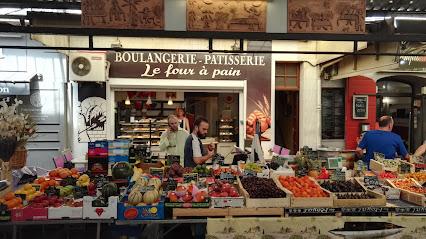
Roc D'Azur
Experience the world's largest mountain bike event in Fréjus, France, with thrilling races, a massive bike show, and stunning Côte d'Azur scenery, drawing over 150,000 visitors annually.
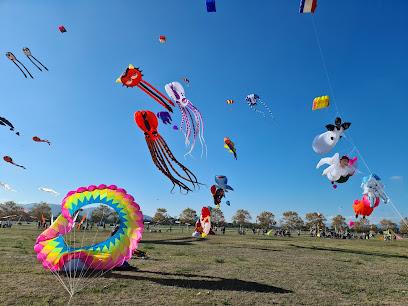
Port Vauban Antibes
Explore Port Vauban, Europe's largest marina in Antibes, where maritime history meets modern luxury on the French Riviera, offering stunning yachts and cultural treasures.
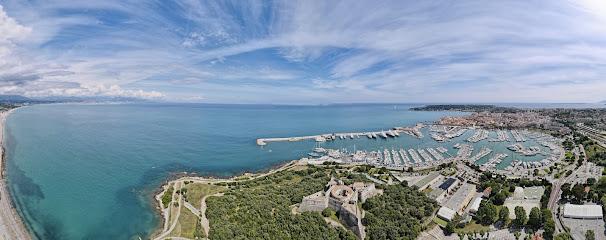
Musée Picasso
Discover Picasso's Mediterranean masterpieces in Antibes' historic Château Grimaldi, where art, history, and breathtaking coastal views converge for an unforgettable cultural experience.
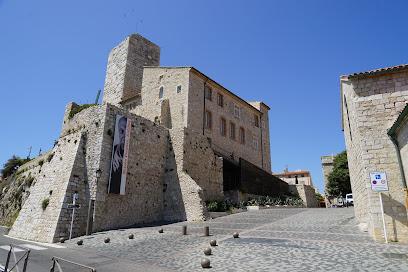
Place des Lices
Experience the vibrant heart of Saint-Tropez at Place des Lices: a historic square where Provençal markets, pétanque games, and artistic inspiration converge under the shade of ancient plane trees.
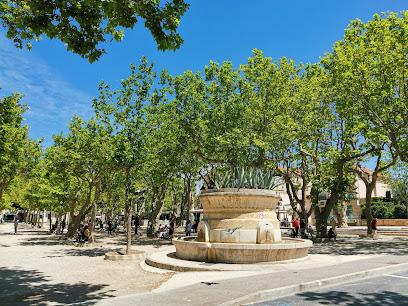
Citadelle de Saint-Tropez - Musée d'histoire maritime
Discover Saint-Tropez's maritime soul at the Citadelle, a historic fortress offering panoramic views and a captivating journey through the town's seafaring past.
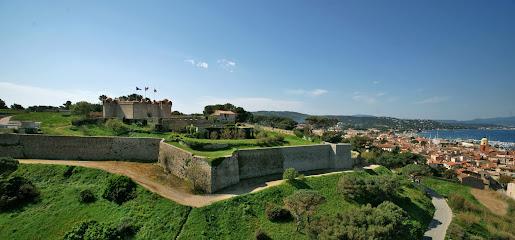
Château de la Napoule
Discover a whimsical castle on the French Riviera, transformed by American artists into a haven of art, history, and stunning gardens. Experience the magic of Château de la Napoule.
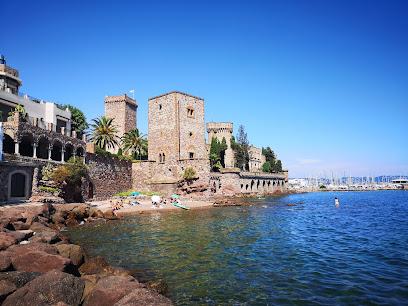
Antibes Land Park
Experience thrilling rides and family fun at Antibes Land, the largest amusement park on the French Riviera, offering a unique blend of traditional charm and modern excitement.
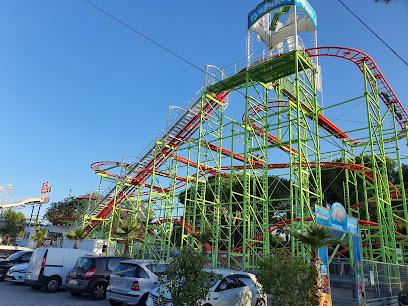
Bay of Antibes Billionaires
Discover the allure of the Bay of Antibes Billionaires, a haven of turquoise waters, luxurious villas, and breathtaking coastal walks on the exclusive Cap d'Antibes, French Riviera.
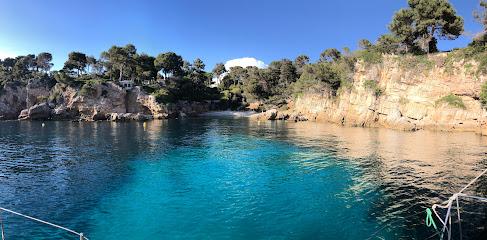
Musée International de la Parfumerie (MIP)
Explore the captivating world of fragrance at the Musée International de la Parfumerie in Grasse, the heart of perfume history, art, and innovation.
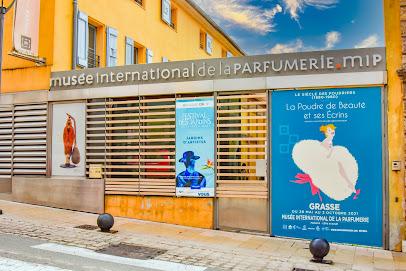
Essential places to dine
Le Caveau 30
Experience exquisite French and seafood cuisine at Le Caveau 30 in Cannes - where every meal is a celebration of flavor and elegance.
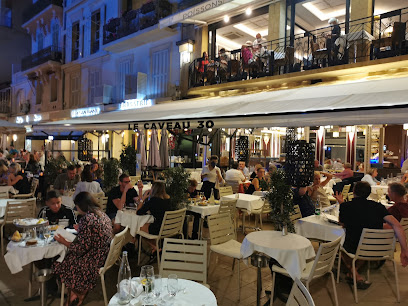
La Môme
Experience exquisite Mediterranean cuisine at La Môme in Cannes - where every meal is a celebration of flavor and elegance.
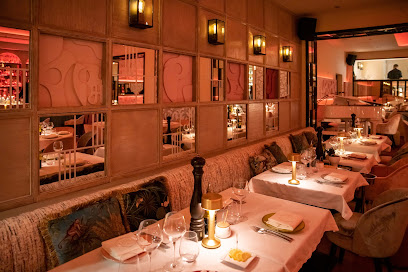
L'Alba - Beach Restaurant
Experience exquisite French and Mediterranean cuisine at L'Alba Beach Restaurant in Cannes, where breathtaking views meet culinary excellence.
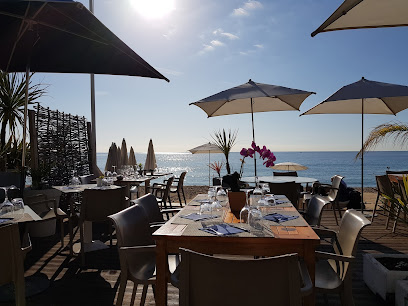
Le Cabanon - Restaurant - Plage
Experience exquisite French and Mediterranean cuisine at Le Cabanon in Cannes, where stunning sea views meet culinary excellence.
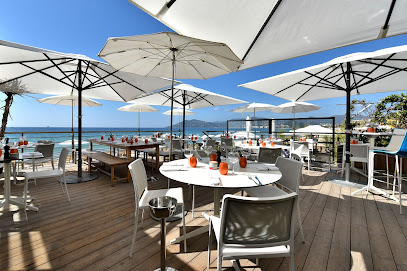
Da Laura Cannes
Experience authentic Italian cuisine at Da Laura Cannes, where delightful flavors meet warm hospitality in an inviting atmosphere.
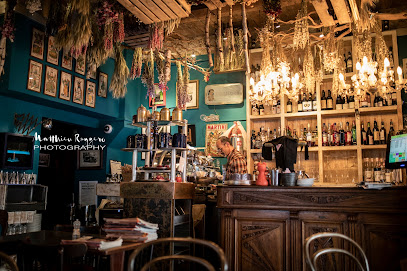
Restaurant Beryte
Experience authentic Lebanese cuisine at Restaurant Beryte in Cannes - where Mediterranean flavors meet welcoming ambiance.
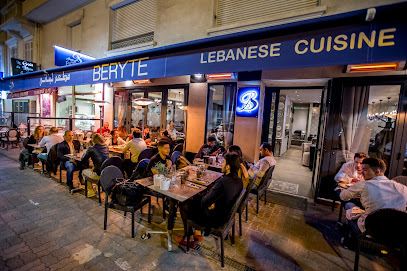
Bella Storia
Experience authentic Italian cuisine at Bella Storia in Cannes – where every dish tells a story.
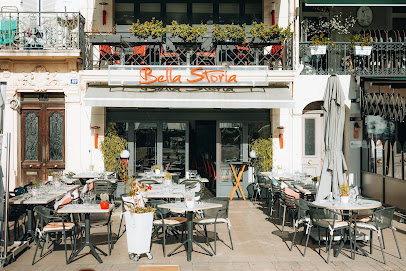
le grain de sel ...
Discover the flavors of Asia blended with French and Mediterranean influences at Le Grain de Sel in Cannes.
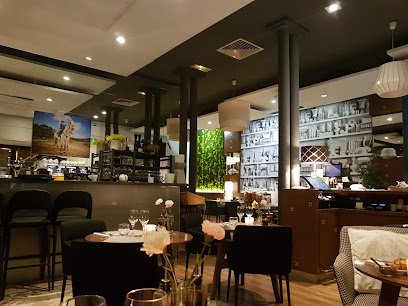
Le Cirque
Experience authentic French cuisine at Le Cirque in Cannes - where local ingredients meet culinary artistry.
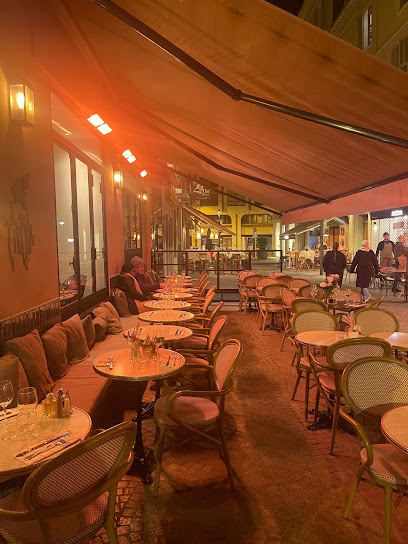
L'Assiette Provençale
Experience authentic French and Mediterranean cuisine at L'Assiette Provençale in Cannes - where every dish tells a story.
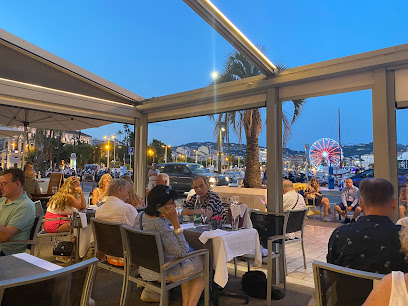
Maëma - Restaurant Plage
Experience exquisite dining at Maëma - Restaurant Plage in Cannes, where culinary artistry meets breathtaking seaside views.
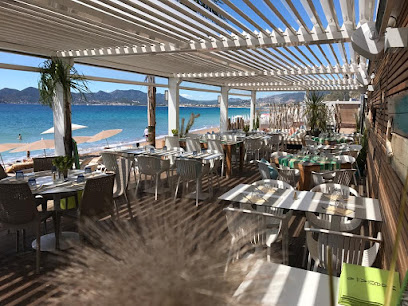
Le Bistrot Gourmand
Discover Le Bistrot Gourmand in Cannes for an unforgettable dining experience blending haute French cuisine with Mediterranean flair.
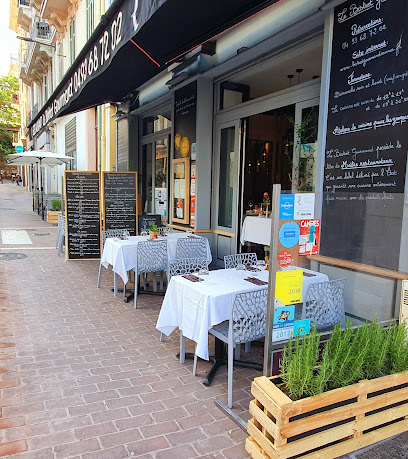
Chaï Dee - Restaurant Thaï
Experience the vibrant flavors of Thailand at Chaï Dee in Cannes - where every dish tells a story.
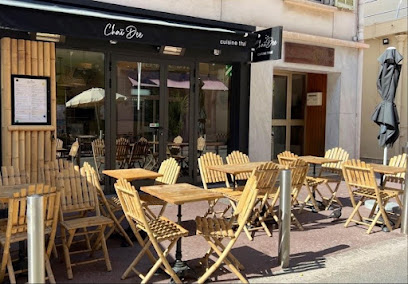
L'épicurieux
Savor exquisite French cuisine and fine wines at L'épicurieux in Cannes—a must-visit culinary gem for all food lovers.
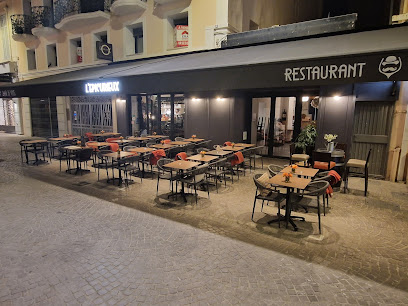
Black Sails - A Pirate Tavern By Chef LeChat
Discover Black Sails - A Pirate Tavern by Chef LeChat in Cannes: where gourmet burgers meet an enchanting pirate-themed atmosphere.
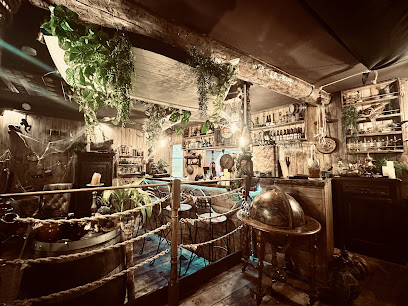
Markets, malls and hidden boutiques
Galeries Lafayette Cannes
Explore Galeries Lafayette Cannes for an exceptional shopping experience featuring fashion, beauty, and luxury goods in a stunning setting.
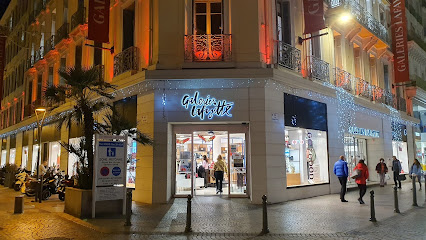
Louis Vuitton Cannes
Indulge in luxury shopping at Louis Vuitton Cannes, where elegance meets the stunning French Riviera in a premier fashion destination.
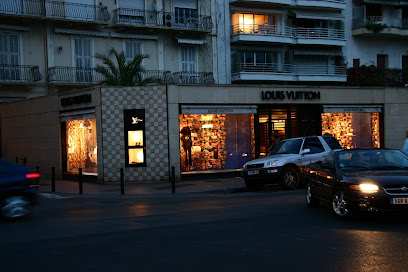
Flying Tiger Copenhagen Cannes
Explore the whimsical world of Flying Tiger Copenhagen in Cannes, where unique gifts and quirky treasures await every tourist!
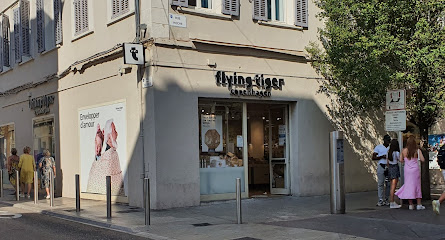
NEW CANNES « Sneakers Shop »
Explore the stylish New Cannes Sneakers Shop for a unique selection of trendy footwear and clothing for all ages in the heart of Cannes.
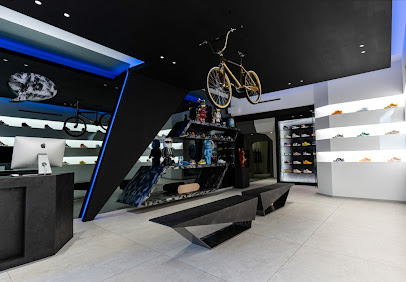
LACOSTE Cannes Store
Explore the chic and sporty glamour of LACOSTE in Cannes - a must-visit for fashion lovers on the French Riviera.
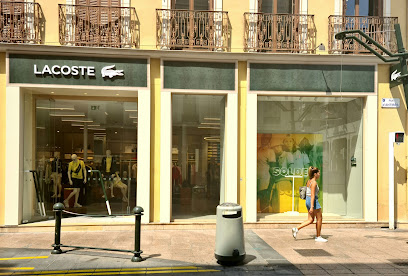
CHANEL CANNES
Discover the epitome of luxury shopping at Chanel Cannes, where fashion, elegance, and style converge on the iconic Croisette.
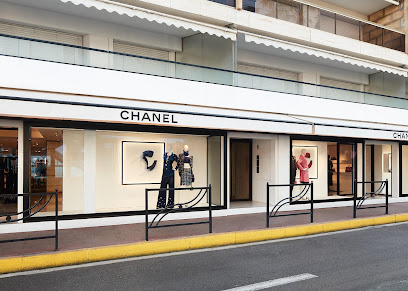
Dior
Explore the world of luxury fashion at Dior in Cannes, where elegance meets timeless style along the iconic Boulevard de la Croisette.
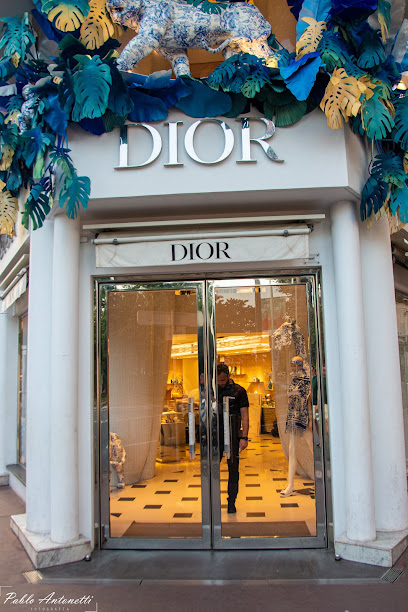
Pylones
Explore the whimsical world of Pylones in Cannes, where unique gifts and fashionable accessories await every visitor.
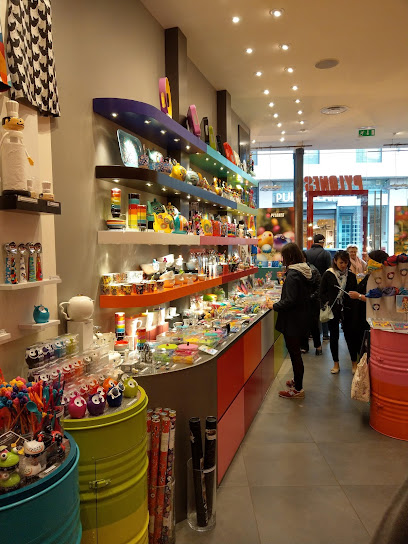
Bathroom Graffiti
Explore the eclectic charm of Bathroom Graffiti, a premier gift shop in Cannes offering unique souvenirs and local art to commemorate your visit.
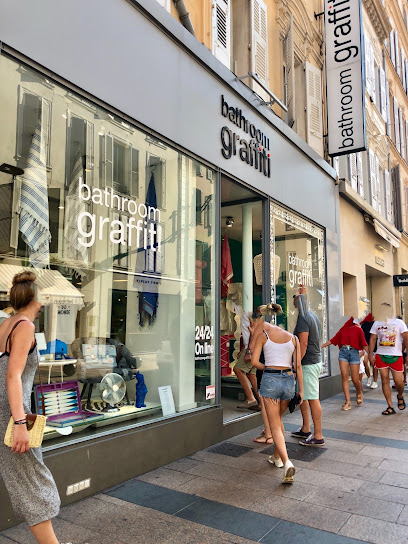
Mistigriff
Discover the essence of French fashion at Mistigriff, a unique boutique in Cannes offering stylish clothing and accessories for every occasion.
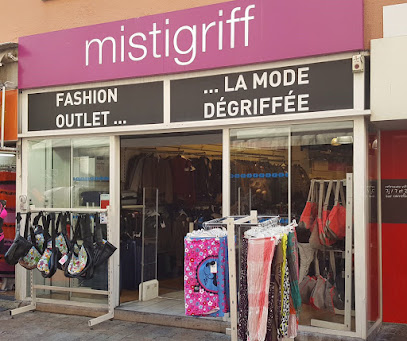
Absolument Magique
Explore a magical realm in the heart of Cannes at Absolument Magique - your destination for unique gifts, books, and mystical treasures.
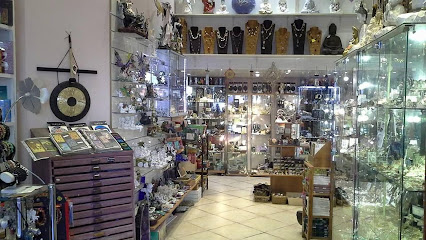
Boutique Montblanc Cannes
Explore the elegance of Boutique Montblanc Cannes, where luxury writing instruments meet exquisite leather goods and stunning jewelry.
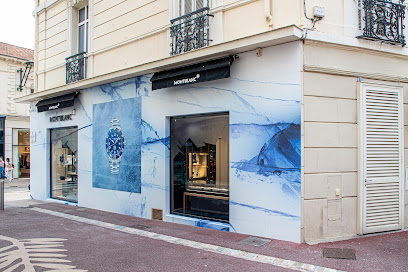
TPGK- Boutique Cannes
Explore TPGK - Boutique Cannes, where fashion meets elegance in the heart of the French Riviera, offering unique styles for every occasion.
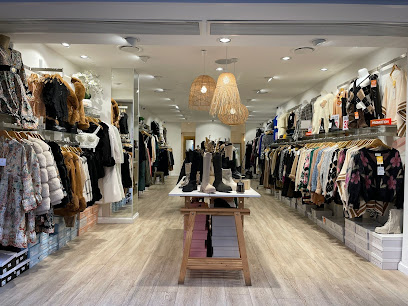
G-Star RAW Store
Explore the G-Star RAW Store in Cannes for stylish denim and accessories, embodying the essence of French fashion and sustainability.
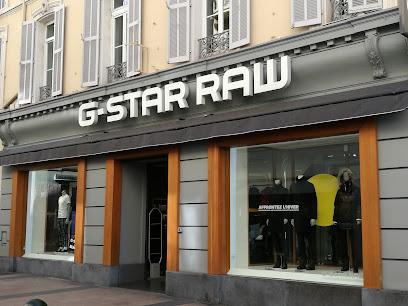
FROM FUTURE - Cannes
Explore the chicest clothing store in Cannes, FROM FUTURE, and elevate your fashion game with stylish selections in the heart of the French Riviera.
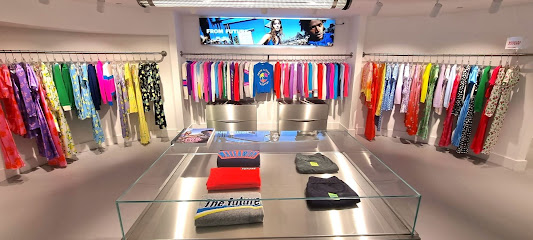
Essential bars & hidden hideouts
Ma Nolan's Irish Pub, Cannes
Enjoy a taste of Ireland in the heart of Cannes at Ma Nolan's Irish Pub, where live music and hearty dishes create an unforgettable experience.
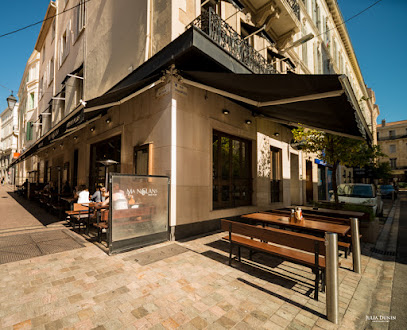
Byron
Discover Byron, a vibrant Irish pub in Cannes, offering a perfect blend of traditional food, drinks, and a unique atmosphere for tourists seeking local flavor.
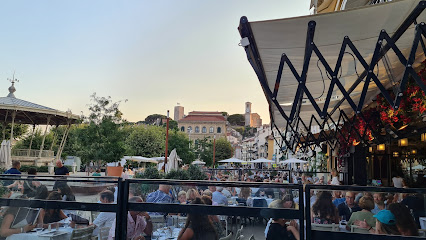
Morrisons Irish Pub
Experience authentic Irish culture at Morrisons Irish Pub in Cannes with great food, drinks, and live entertainment.
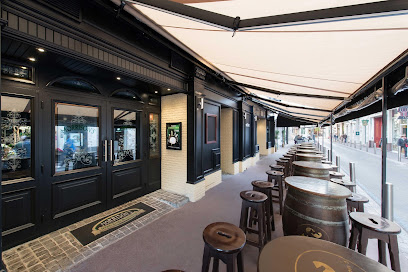
The Quay's Irish Pub
Experience the authentic Irish pub atmosphere at The Quay's Irish Pub in Cannes, where delicious food and live entertainment await.
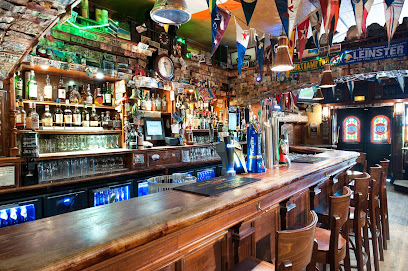
The Dukes Pub
Experience the vibrant atmosphere of The Dukes Pub in Cannes, where local culture meets a lively nightlife in a cozy setting.
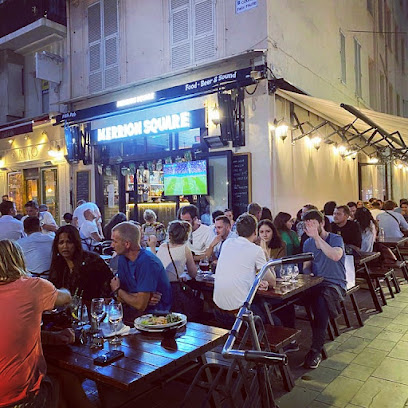
Charlys wine bar cannes Kate &charly
Discover the lively ambiance and exquisite wine selection at Charly's Wine Bar, a perfect blend of relaxation and nightlife in Cannes.
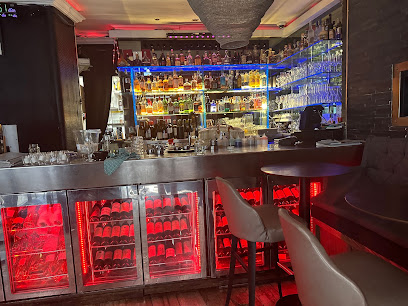
Le Speakeasy Cannes
Discover the lively fusion of dining and nightlife at Le Speakeasy Cannes, where exquisite cuisine meets vibrant entertainment in an unforgettable setting.
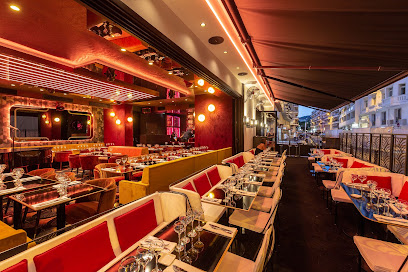
Barrel Pub
Discover the vibrant nightlife of Cannes at Barrel Pub, where exquisite drinks and lively ambiance create unforgettable memories.
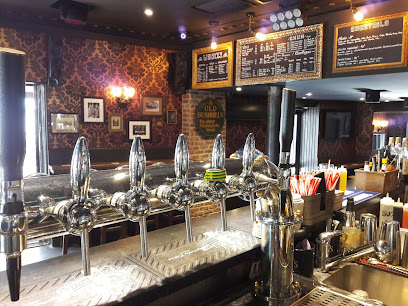
Le Bar A Vin
Discover the charm of Le Bar A Vin in Cannes, where exquisite wines and a cozy ambiance create the perfect atmosphere for relaxation and enjoyment.
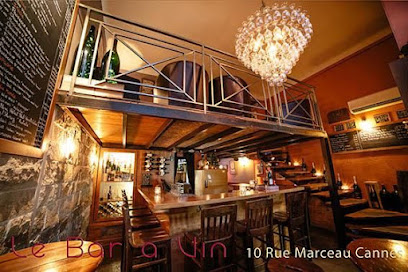
La Belle Epoque
Experience the vibrant nightlife of Cannes at La Belle Epoque, a chic cocktail bar offering exquisite drinks and delightful tapas in a stylish setting.
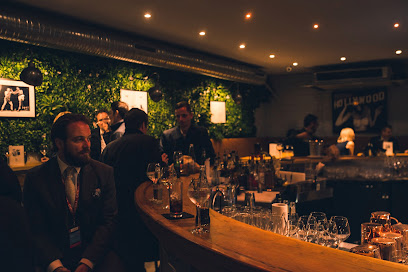
Harry's Bar Cannes
Experience the elegance of Harry's Bar in Cannes, where exquisite cocktails meet stunning views of the French Riviera.
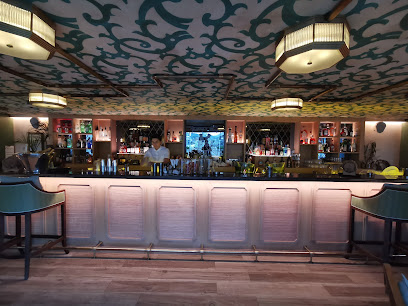
Le BeFirst
Experience the vibrant nightlife of Cannes at Le BeFirst, where great drinks and good times await in a lively atmosphere.
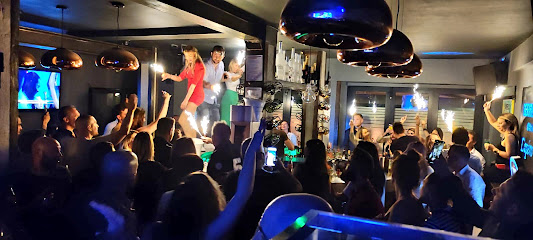
Morrison's Lounge
Discover the vibrant ambiance and expertly crafted cocktails at Morrison's Lounge, a premier bar in the heart of Cannes, perfect for every celebration.
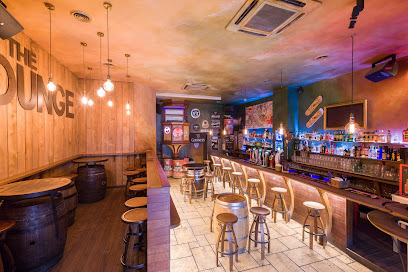
L'endroit cannes
Experience the glamour of Cannes at L'endroit, a stylish cocktail bar offering exquisite drinks and a vibrant atmosphere in the heart of the French Riviera.
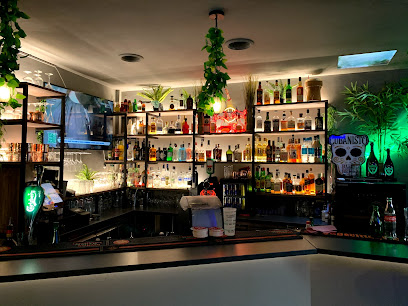
Local Phrases
-
- HelloBonjour
[bohn-zhoor] - GoodbyeAu revoir
[oh ruh-vwah] - YesOui
[wee] - NoNon
[nohn] - Please/You're welcomeS'il vous plaît
[seel voo pleh] - Thank youMerci
[mehr-see] - Excuse me/SorryExcusez-moi/Désolé
[ehk-skew-zay mwah/day-zoh-lay] - How are you?Comment ça va?
[koh-mohn sa vah] - Fine. And you?Bien. Et vous?
[byen. ay voo] - Do you speak English?Parlez-vous anglais?
[par-lay voo ahn-glay] - I don't understandJe ne comprends pas
[zhuh nuh kohm-prahnd pah]
- HelloBonjour
-
- I'd like to see the menu, pleaseJe voudrais voir la carte, s'il vous plaît
[zhuh voo-dray vwahr lah kart, seel voo pleh] - I don't eat meatJe ne mange pas de viande
[zhuh nuh mahnj pah duh vyand] - Cheers!Santé!
[sahn-tay] - I would like to pay, pleaseJe voudrais payer, s'il vous plaît
[zhuh voo-dray pay-ay, seel voo pleh]
- I'd like to see the menu, pleaseJe voudrais voir la carte, s'il vous plaît
-
- Help!À l'aide!
[ah lehd] - Go away!Allez-vous en!
[ah-lay vooz ahn] - Call the Police!Appelez la police!
[ah-peh-lay lah poh-lees] - Call a doctor!Appelez un médecin!
[ah-peh-lay uh meh-deh-sahn] - I'm lostJe suis perdu
[zhuh swee pair-doo] - I'm illJe suis malade
[zhuh swee mah-lahd]
- Help!À l'aide!
-
- I'd like to buy...Je voudrais acheter...
[zhuh voo-dray ah-shuh-tay] - I'm just lookingJe regarde juste
[zhuh ruh-gahrd zhuhst] - How much is it?Combien ça coûte?
[kohm-byen sah koot] - That's too expensiveC'est trop cher
[say troh shehr] - Can you lower the price?Pouvez-vous baisser le prix?
[poo-veh voo bay-say luh pree]
- I'd like to buy...Je voudrais acheter...
-
- What time is it?Quelle heure est-il?
[kell uhr eh-teel] - It's one o'clockIl est une heure
[eel eh oon uhr] - Half past (10)Dix heures et demie
[dees uhr ay duh-mee] - MorningMatin
[mah-tan] - AfternoonAprès-midi
[ah-pray-mee-dee] - EveningSoir
[swahr] - YesterdayHier
[ee-yehr] - TodayAujourd'hui
[oh-zhoor-dwee] - TomorrowDemain
[duh-mahn] - 1Un
[uhn] - 2Deux
[duh] - 3Trois
[twah] - 4Quatre
[kah-truh] - 5Cinq
[sank] - 6Six
[sees] - 7Sept
[sept] - 8Huit
[weet] - 9Neuf
[nuff] - 10Dix
[dees]
- What time is it?Quelle heure est-il?
-
- Where's a/the...?Où est...?
[oo eh] - What's the address?Quelle est l'adresse?
[kell eh la-dress] - Can you show me (on the map)?Pouvez-vous me montrer (sur la carte)?
[poo-veh voo muh mohn-tray (soor lah kart)] - When's the next (bus)?Quand est le prochain (bus)?
[kahnd eh luh proh-shay (boos)] - A ticket (to ....)Un billet (pour ...)
[uhn bee-yay (poor)]
- Where's a/the...?Où est...?
History of Cannes
-
Cannes' history dates back to the 2nd century BC when it was a Ligurian settlement known as Aegitna. The ancient Ligurians were a group of tribes who lived along the Mediterranean coast, and their presence in Cannes laid the foundations for future settlements.
-
During the Roman era, Cannes became an important outpost. The Romans called it 'Canua,' and it served as a strategic location for trade and military operations. Remnants of Roman roads and structures can still be found in the area, reflecting its historical significance.
-
In the Middle Ages, Cannes was a small fishing village under the protection of the Lords of the Abbey of Lérins. The construction of the Suquet Tower and the fortified castle on top of Le Suquet hill provided defense against marauding pirates and invaders, shaping the city's medieval landscape.
-
Founded in the 5th century, the Abbey of Lérins on the Île Saint-Honorat played a crucial role in Cannes' religious and cultural history. The monks from the abbey not only cultivated the land but also contributed to the spiritual and educational development of the region.
-
Cannes underwent a significant transformation in the 19th century when it became a popular winter resort for European aristocracy. The arrival of wealthy British aristocrat Lord Brougham in 1834 marked the beginning of Cannes' evolution into a glamorous and fashionable destination. His endorsement attracted other European elites, leading to the construction of lavish villas and hotels.
-
The inaugural Cannes Film Festival took place in 1946, quickly becoming one of the most prestigious film festivals in the world. Held annually at the Palais des Festivals et des Congrès, the festival has cemented Cannes' status as a cultural hub and a symbol of cinematic excellence.
-
Today, Cannes is renowned for its luxurious lifestyle, stunning beaches, and vibrant cultural scene. The city's rich historical tapestry is evident in its preserved architecture, museums, and annual events. Cannes continues to attract visitors from around the globe, drawn by its unique blend of historical charm and modern sophistication.
Cannes Essentials
-
Cannes is easily accessible via Nice Côte d'Azur Airport, which is approximately 27 kilometers away. From the airport, you can take a taxi, rent a car, or use the express bus service (Bus 210) that connects directly to Cannes. Alternatively, you can reach Cannes by train, with its well-connected railway station offering regular services from major cities like Paris, Marseille, and Nice.
-
Cannes offers a variety of transportation options. The city has an efficient local bus service operated by Palm Bus, which covers most tourist attractions and neighborhoods. Taxis are readily available and can be hailed on the street or booked in advance. For a more scenic mode of travel, consider renting a bicycle or electric scooter. Additionally, the city is pedestrian-friendly, and many attractions are within walking distance of each other.
-
The official currency in France is the Euro (EUR). Credit and debit cards are widely accepted in hotels, restaurants, and shops. ATMs are plentiful, especially in central areas. It's advisable to carry some cash for smaller establishments and markets. Contactless payment methods are also commonly used.
-
Cannes is generally a safe city for tourists, but it's advisable to remain vigilant, especially in crowded areas such as the Promenade de la Croisette and the central train station. Pickpocketing can occur in these busy spots, so keep an eye on your belongings. Avoid poorly lit areas at night and be cautious when using ATMs.
-
In case of an emergency, dial 112 for immediate assistance. This number connects you to police, fire, and medical services. The local police station and medical facilities are well-equipped to handle emergencies. It's recommended to have travel insurance that covers medical emergencies. Pharmacies are widely available for minor health issues.
-
Fashion: Do dress smartly, especially if you plan to visit upscale restaurants or attend events. Beachwear should be confined to the beach. Religion: Do show respect when visiting religious sites. Modest attire is recommended. Public Transport: Do validate your ticket upon boarding buses. Don't eat or drink on public transport. Greetings: Do greet with a polite 'Bonjour' and a handshake. Eating & Drinking: Do try the local cuisine and wines. Don't rush meals; dining is considered a leisurely activity.
-
To experience Cannes like a local, visit the Marché Forville, a bustling market offering fresh produce, meats, and flowers. Enjoy a stroll along the less touristy streets of Le Suquet, the old town, where you can find charming boutiques and local eateries. For a unique experience, take a boat trip to the Îles de Lérins, a group of islands just off the coast, offering beautiful scenery and historic sites.
Trending Landmark in Cannes
-
Palace of Festivals and Congresses of Cannes
-
Royal Fort
-
Église Notre-Dame d'Espérance
-
Abbaye de Lérins
-
Musée des explorations du monde
-
Cannes Walk Of Fame
-
Musée du Masque de fer et du Fort Royal
-
Church of Our Lady of Good Voyage
-
Villa Domergue
-
St. Michael the Archangel Church
-
Le Suquet, old quarter of Cannes
-
Église Notre-Dame des Pins
-
Suquet des Art(iste)s - Résidence d'artistes
-
Cannes Riviera
-
Tour du Masque de fer
Nearby Cities to Cannes
-
Things To Do in Nice
-
Things To Do in Fontvieille
-
Things To Do in Moneghetti
-
Things To Do in Les Moneghetti
-
Things To Do in Monaco-Ville
-
Things To Do in La Condamine
-
Things To Do in Monte Carlo
-
Things To Do in Larvotto
-
Things To Do in La Rousse
-
Things To Do in Saint Roman
-
Things To Do in Saint-Tropez
-
Things To Do in Aix-en-Provence
-
Things To Do in Marseille
-
Things To Do in Turin
-
Things To Do in Genoa
















